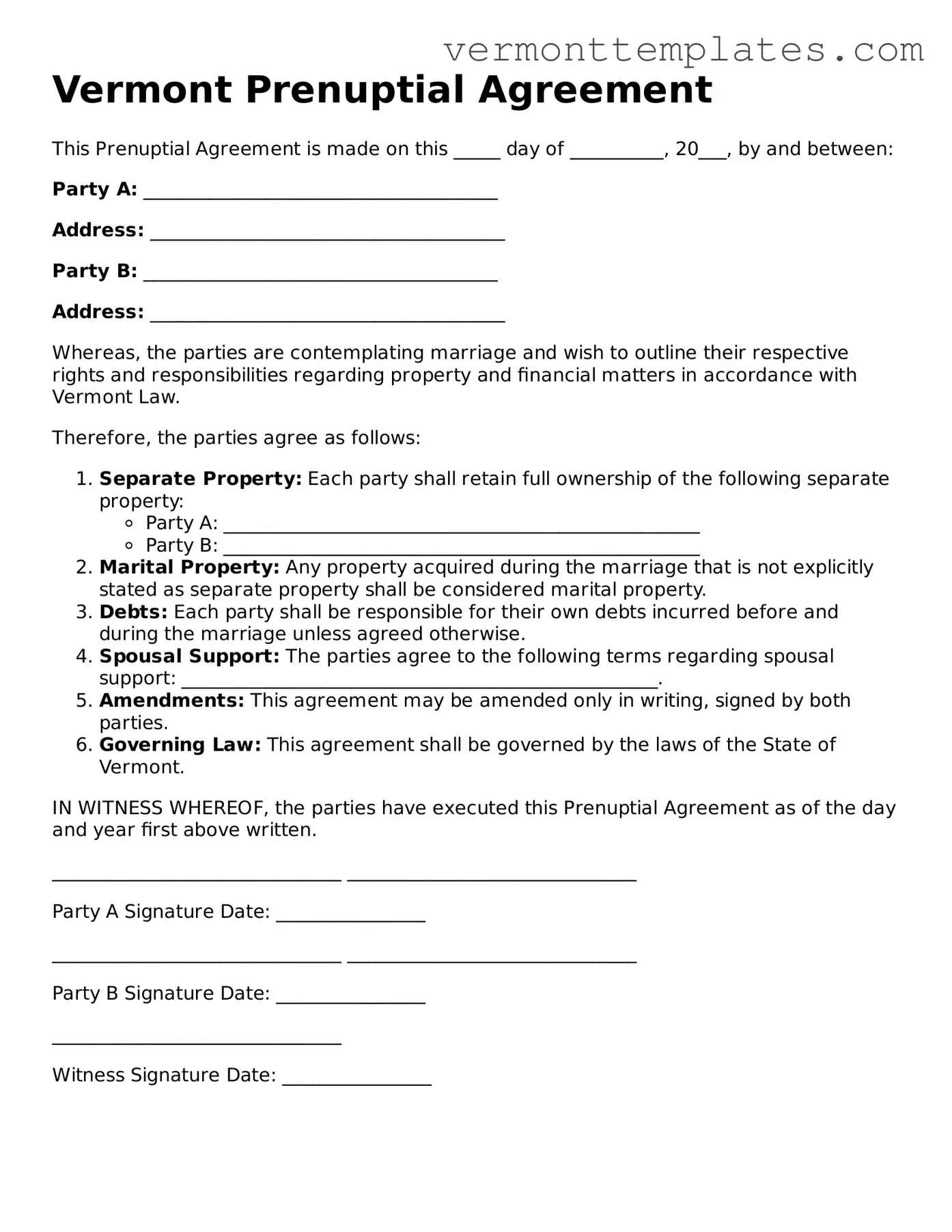Legal Prenuptial Agreement Template for Vermont
A Vermont Prenuptial Agreement form is a legal document that outlines the financial and personal rights of each spouse in the event of a divorce or separation. This agreement serves to protect individual assets and clarify financial responsibilities during the marriage. Understanding its components is essential for couples considering this proactive approach to their financial future.
Open Prenuptial Agreement Editor

Legal Prenuptial Agreement Template for Vermont
Open Prenuptial Agreement Editor
Complete the form at top speed
Edit, save, and download Prenuptial Agreement online with ease.
Open Prenuptial Agreement Editor
or
⇩ Prenuptial Agreement PDF Form
